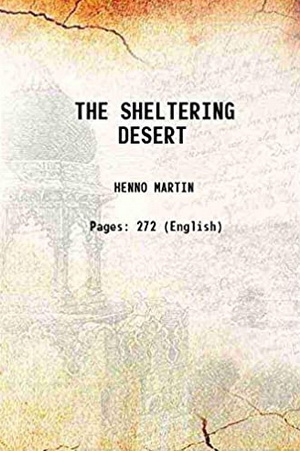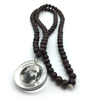The Sheltering Desert

The Sheltering Desert
by Hanno Martin
Facsimile Publisher, 2015 reprinted with the help of the original edition published in 1957
272 pages
Paperback and Hardcover:
amazon.com
Download for free as PDF file
Watch film produced in 1991 on YouTube
Read more: The Story of Henno Martin and Hermann Korn
No matter where you were in early 2020 you most likely would soon be given a new lifestyle requirement – some version of, ‘shelter in place’. This gave some of us official permission to ‘hide out’, ‘hunker down’, ‘simplify’, and ‘contemplate’. For us it meant to continue becoming the hermits we already were. Life hasn’t changed that much for Pravina and me, as we are not great socializers and have only recently moved to this desert community in Arizona.
Yet, it is not true that nothing has changed. Far from it. The drama, seemingly being played ‘out there’, is rather ‘right here’. Fear, empathy, and horror, along with compassion, courage, and heartbreak, are everyday emotions these days as we see the pandemic play out globally. One might ask, “How do we most intelligently respond to this existential threat?” “How to best use this rare opportunity?”
One day recently, I remembered a favorite book and sure enough when I checked the dusty library there it was: The Sheltering Desert by Henno Martin, an original copy published in 1958. This book had intrigued me like few others when I first read it 20 years ago.
Hermann Korn and Henno Martin
The story begins in West Africa, in the year 1939. Two young German geologists, Henno and Hermann, along with their dog Otto, are doing field research in the wild and untamed Namibian desert. The sudden announcement of impending war in Europe has isolated the Germans in the area. Many support the German war effort but now live in an English-controlled area. Some Germans do not support the impending world war.
This is Henno writing from page 1: “….my friend Hermann Korn and I had already decided that this was not our war. We had seen it coming for a long time, and in fact that was the reason why we had left Europe in the first place. We wanted no hand or part in the mass suicide of civilized people.”
Instead, they decided to ‘hunker down’ in the wild Namibian desert. Heading out of town, ostensibly for a week of field research, they cast themselves out into the untamed canyons of the desert. With a truck piled high with tools, instruments, food, water, a radio and a wind generator, they headed off-road, wanting to avoid detection lest the Brits suspect them of being German spies. They headed for an as yet undiscovered area. Their intention – to live out the war as bushmen in the unforgiving desert.
The book then details their arduous uncovering of a marvelous desert landscape, understanding its cycles and rhythms, its wildlife, while living the desert’s sometimes harsh yet often sublime lessons. Often testing their ingenuity and patience, it was also a deeply inner journey for each of them. They truly became soul brothers.
Their two and a half years in the desert ended abruptly when Hermann became sick with what was later diagnosed as beriberi. When they could no longer deny the severity of his illness they made the difficult decision to return to civilization, knowing full well that they would be captured and surely imprisoned. As this becomes clear, Henno writes:
“My thoughts were rather sad but the silence of the all-embracing night comforted me. The Southern Cross sparkled in the almost gothic arch of my cave above the two Centaurus stars, and somehow, I knew that the hard times we had been through had not been wasted. We had taken a wild, desolate and magnificent tract of land, and made it our home. We had lived with the lovely beasts of the wilderness as few civilized men had ever done before us. We had lived savagely, as beasts of prey live. We had often eaten with blood still on our hands. Nevertheless, we had lived as thinking, sensitive men; and the ruthless struggle for existence had not made us callous or brutal, but given us an understanding far beyond the narrow limits of our life in the desert. We had learned that life could transmute bad into good, and extract both beauty and significance from ordinary things. We had learned that there is a force capable of judgement in all life; in other words, a spiritual force, a force which expresses itself in feeling, which judges all things through feeling approving and denying, and thus transcends the rigid course of the inanimate world.”
Henno and Hermann chose to shelter in the desert and hunker down as many of us are now doing. Choosing this dangerous response to the alternative of being drafted into the Nazi war machine, enabled them to develop a profound appreciation of living. They are an inspiration for those of us comfortably ‘going inside’. We too can ‘extract beauty and significance from ordinary things’.
Srajan is a writer, lover of Asian art and relishes life as a global nomad
- Log in to post comments
- 18 views
